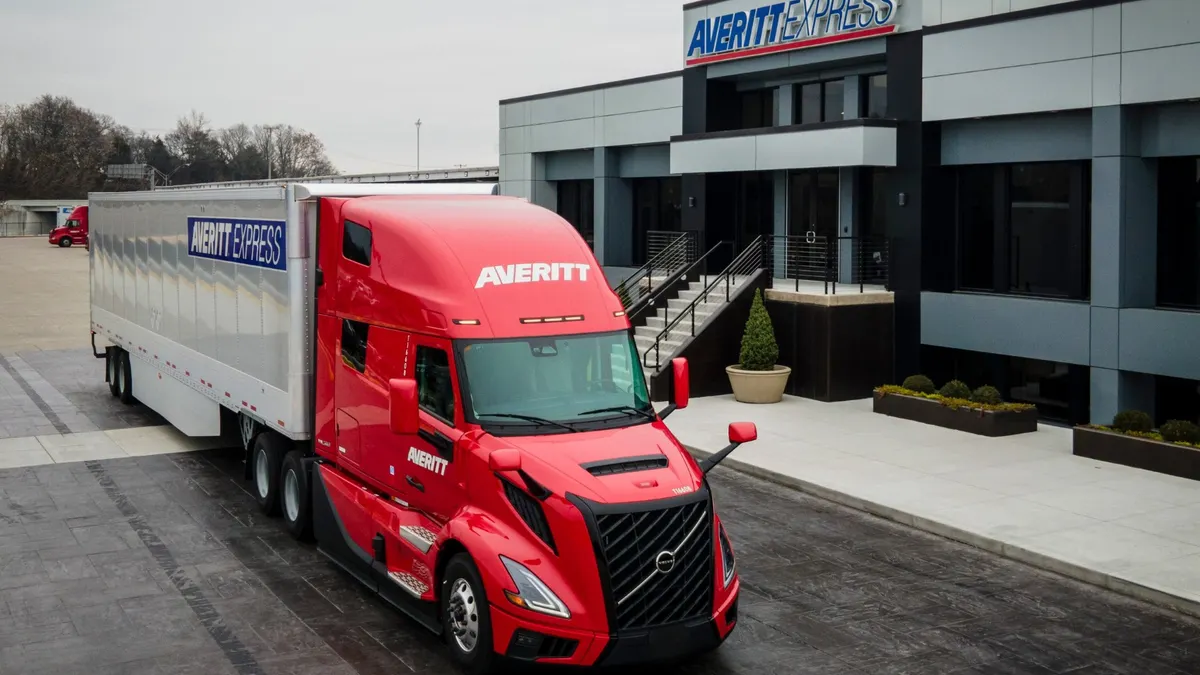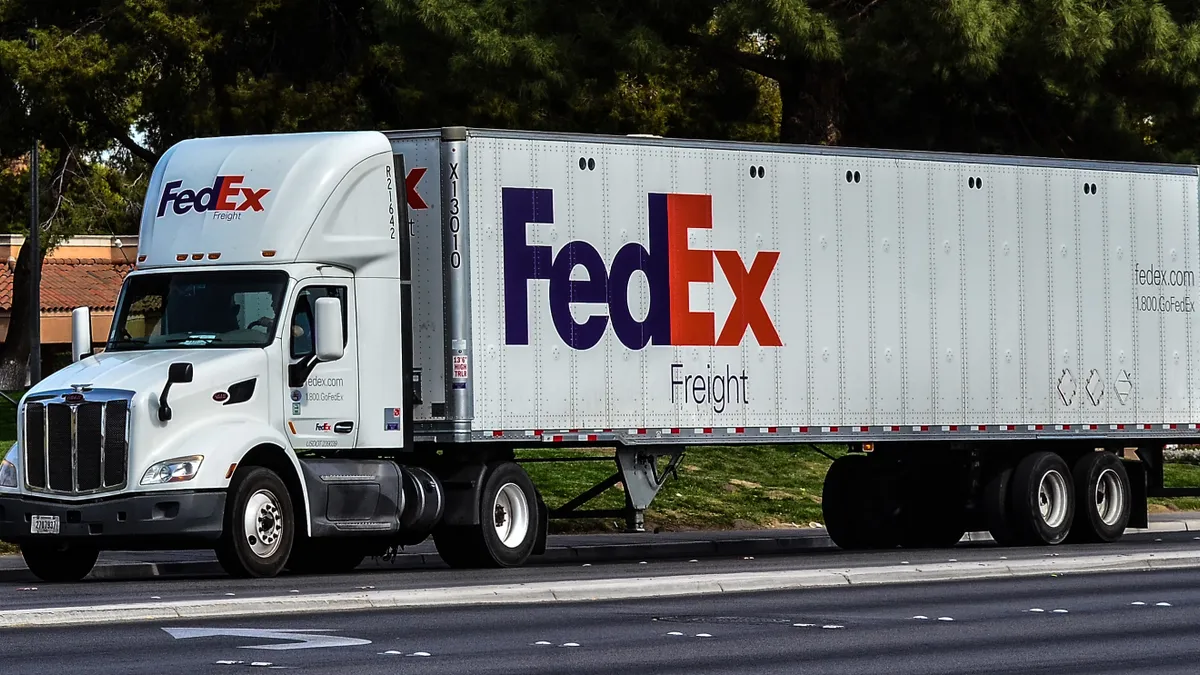Top institutional investors BlackRock and the Vanguard Group shifted stakes across the trucking industry at the end of 2022 as uncertainty prevailed in the market.
The firms, which each manage trillions of dollars of assets for investors, aligned in some investment decisions, benefiting companies like Knight-Swift Transportation Holdings, Forward Air and XPO, a Transport Dive analysis of securities filings found.
But other decisions showed their strategies diverging at points. For example, whereas BlackRock lowered its percent of shares owned in Old Dominion Freight Line, Vanguard upped its stake.
The differences might merely show how investment firms could be rebalancing pools of money, and changes in positions from firms like Vanguard and BlackRock could mean very little in terms of how companies will perform, analysts told Transport Dive.
"The increases/decreases in the positions of institutional investors have not been shown to be systematic or robust predictors of future returns of underlying securities," Harvard Professor Lauren Cohen wrote, adding that the stakes are so large that it can be difficult to know what an aggregated increase or decrease might signal.
But further analysis showed at least why some divergences might be happening. Analysts suggested that differences could be at play in terms of actively managed funds and funds designed to track broader sections of the markets.
Where BlackRock, Vanguard's strategies align and diverge
Across more than a dozen companies, the two firms tended to make moves in the same direction: increasing overall stakes in companies.
Cornell University clinical professor Scott Stewart, the founder and former equity group leader of the Structured Investments Group at Fidelity Investments, examined the changes and found why some differences are occurring.
For BlackRock's Ryder stake, "index fund assets did not decline" and a "reduction was due to selling of Ryder stock in their active, not index funds," he wrote in an email. In contrast, Vanguard's broad-based funds increased positions in the transportation company.
"It appears that the active funds managed by Blackrock are trading shares, because their views on the stocks’ prospects (combination of company trends and stock valuations) are changing," Stewart wrote.
Meanwhile, with ArcBest, both firms increased stakes. But while actively managed BlackRock funds bought the stock, Vanguard's position changed because of buying with its Value Index Fund that's focused on smaller sized companies, Stewart said. "This illustrates one more reason behind index fund trading: changes in the underlying index," Stewart noted.
How investment firms see trucking companies' outlook
While multiple factors could be at play in the funds’ changes, analysts also gave their own take on how carriers might be navigating challenging economic conditions.
A BlackRock corporate communications spokesperson declined to comment on the changes, but the company’s 2023 Global Outlook provided a glimpse into its strategy.
BlackRock wrote in the outlook that macro and market volatility could require more frequent portfolio changes linked to “economic damage,” and a new investment strategy calls for pursuing “more granular views by focusing on sectors, regions and sub-asset classes, rather than on broad exposures.”
Furthermore, problems are persisting, according to BlackRock. Although there’s some improvement, volatile and persistent inflation may not yet be priced in by the markets, the outlook said. Valuations could fall, and there may be better opportunities in coming years as opposed to now, the firm wrote.
Vanguard voices its own concerns and opportunities in its 2023 outlook. The firm noted its 10-year projection for U.S. equity returns improved compared to a year ago, current U.S. valuations are more attractive, and “a portfolio diversified across asset classes remains an effective tool to manage risk tolerance across a long-term time horizon.”
Market fluctuations are certainly not catching established firms off-guard. Smart players in the industry tend to be aware of how cycles play out, Ari Rosa, U.S. transportation research analyst with Credit Suisse, said in January, speaking about broad trends involving the industry.
Accordingly, businesses such as UPS have noted the potential to distinguish themselves during trying times. Ryder CFO John Diez also noted there’s increased demand for resilient supply chains.
For C.H. Robinson, CFO Mike Zechmeister said in a Feb. 15 email that the 3PL is well-positioned to deliver, where its technology helps with improving "reliability, driving efficiencies and lowering our cost to serve, making us highly competitive in any economic condition but especially during this cooling-off phase of the market."
Even as companies brace for challenging economic conditions, the transportation industry as a whole could have less volatility than the rest of the economy, according to Satish Jindel of SJ Consulting Group. He notes spending on services far outpaces spending on goods.
“People may cut back on travel,” he said, “but they have to eat.”


















